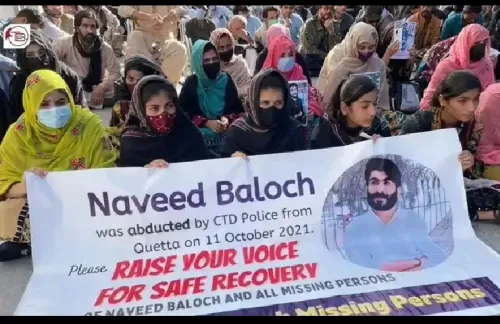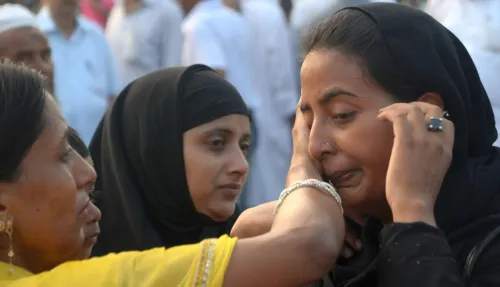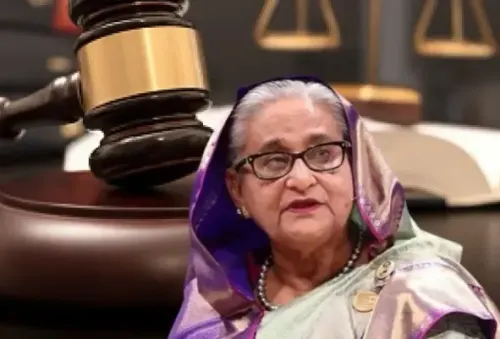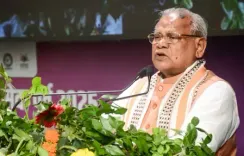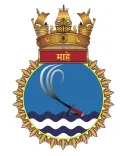Does Sheikh Hasina Deserve the Maximum Punishment?
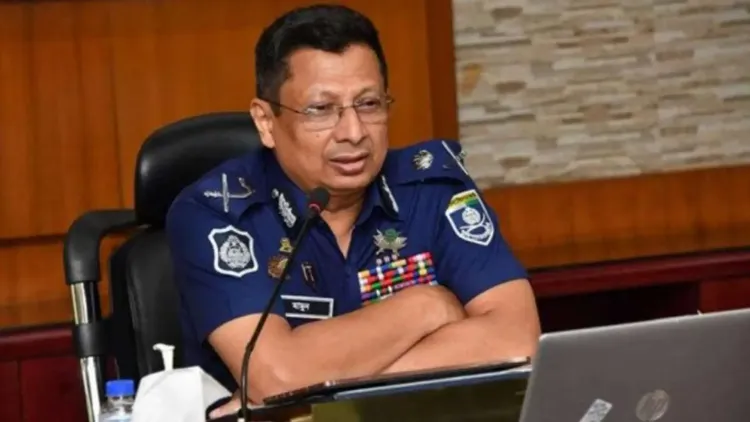
Synopsis
Key Takeaways
- Sheikh Hasina has been declared guilty of crimes against humanity.
- The court recommends maximum punishment for her actions.
- Former aides are also implicated in the case.
- Security measures in Dhaka have been intensified.
- The case highlights ongoing political tensions in Bangladesh.
Dhaka, Nov 17 (NationPress) The International Crimes Tribunal (ICT) of Bangladesh declared that former Prime Minister Sheikh Hasina is deserving of the maximum punishment for her involvement in crimes against humanity linked to the protests that occurred in July of the previous year.
The court found Hasina guilty along with her two senior associates, former Home Minister Asaduzzaman Khan Kamal and former Inspector General of Police Chowdhury Abdullah Al-Mamun.
While Al-Mamun has received a pardon, the court indicated that due to the severity of the offenses, he will face a lenient sentence.
The sentencing for Hasina is still pending as the detailed verdict, which spans 453 pages, is currently being read.
To date, Hasina has defied the court's orders by not returning to Bangladesh to confront the trial. Asaduzzaman remains a fugitive, while Mamun is in custody and has admitted guilt.
Notably, Mamun has become a state witness, marking him as the first accused to do so since the tribunal's inception in 2010.
The judgment was broadcast live by Bangladesh Television (BTV) from the ICT courtroom, presided over by Justice Md Golam Mortuza Majumder.
The official charge documents comprise 8,747 pages, detailing references, evidence collected, and an extensive list of victims, according to reports from The Dhaka Tribune.
Prosecutors have leveled five charges against the defendants, including the failure to prevent murder, which is categorized as crimes against humanity in Bangladeshi law. They are pursuing the death penalty if the defendants are convicted.
Moreover, the prosecutors have asked the tribunal to seize the assets of all three defendants upon conviction and distribute them to the victims' families.
Despite the charges, Hasina has consistently denied all allegations.
Additionally, Dhaka is under an unprecedented security lockdown following a 'shoot-at-sight order' issued by Dhaka Metropolitan Police Commissioner Sheikh Md Sajjat Ali aimed at individuals involved in arson or violent acts leading up to the ICT verdict.
The two-day strike organized by Hasina's Awami League on November 16-17 coincided with a surge in arson and cocktail explosion incidents across the capital.
Over the last 36 hours, at least 21 leaders and activists from the Awami League, currently barred from political activities, have been apprehended during special operations in Narayanganj, as reported by The Daily Star.


